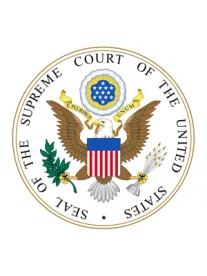The Supreme Court denied a petition for certiorari last Monday in U.S. ex rel. Prather v. Brookdale Senior Living Communities, Inc., No. 17-5826 (6th Cir. June 11, 2018), again declining to revisit or clarify the False Claims Act's “materiality” standard set forth in its 2016 decision in Universal Health Services v. United States ex rel. Escobar, 136 S. Ct. 1989 (2016).
As we previously discussed in detail on the blog, the Supreme Court’s Escobar decision endorsed the theory of “implied false certification” under the False Claims Act (FCA). To succeed on this theory, plaintiffs must plead and prove a “rigorous and demanding” element of “materiality,” which requires that the alleged violation of a statute, regulation, or contract giving rise to an FCA violation be “material” to the government’s payment decision and that the provider or contractor knows that it is material to this payment decision. As we have reported, extensive litigation concerning materiality has ensued since Escobar, and U.S. Courts of Appeals and federal district courts continue to grapple with its application. In particular, many courts have addressed whether relators have sufficiently alleged materiality to survive a motion to dismiss.
In Prather, the relator alleged that defendant Brookdale Senior Living Communities, Inc. (Brookdale), a home health provider, submitted bills for medical services that were “untimely” signed and certified by physicians in violation of Medicare regulations. When submitting Medicare claims, Brookdale purportedly did not obtain the required physician certifications attesting that the medical services provided by Brookdale were necessary until months after establishing a patient’s plan of care. Because Medicare regulations under 42 C.F.R. § 424.22(a)(2) require physician certifications “at the time the plan of care is established or as soon thereafter as possible,” the relator alleged that Brookdale’s untimely certifications rendered the claims false under the implied false certification theory. The district court dismissed the complaint on materiality grounds, holding that the noncompliance was insubstantial and that the relator failed to allege that the government had ever denied a claim based on a violation of the timing requirement under the Medicare regulations.
On appeal, the Sixth Circuit reversed the district court’s dismissal of the relator’s complaint and held that the relator adequately pleaded materiality under Escobar because the timeliness of physician certifications required by Medicare regulations is an express condition of payment. The court also held that, to allege materiality sufficiently, the relator need not plead facts relating to past government practices or facts showing that Brookdale had knowledge that the alleged violation was material to the government.
Brookdale petitioned the high court to review the Sixth Circuit’s decision and resolve what it described as an “irreconcilable and growing circuit split” over the application of the materiality element under Escobar (while the relator responded that the circuit split is “illusory”). Brookdale sought certiorari on two questions: (1) whether the failure to plead facts relating to past government practices in an FCA action can weigh against a finding of materiality; and (2) whether an FCA allegation fails when the pleadings make no reference to the defendant’s knowledge that the alleged violation was material to the government’s payment decision.
In regards to the first question, Brookdale argued that the Sixth Circuit’s decision precludes courts from considering a relator’s failure to plead past government action to determine whether a defendant’s alleged violations of statute, regulation, or contract are material to the government. Second, Brookdale argued that the Sixth Circuit’s decision conflicts with the scienter requirement in Escobar that a defendant have knowledge that the violation is material to the government’s payment decision. The Sixth Circuit did not require the relator to plead that Brookdale knew that its compliance with the timing requirement was material to Medicare’s decision to pay. The Court declined to address these issues.
With its rejection of Brookdale’s cert. petition, the Supreme Court has now rejected three FCA cases in 2019 involving the issue of materiality under the FCA. As we discussed previously, on January 7, 2019, the Supreme Court declined to review the Ninth Circuit’s decision in U.S. ex rel. Campie v. Gilead Sciences, Inc., 862 F.3d 890 (9th Cir. 2017). There, the Ninth Circuit reversed dismissal of the relator’s complaint, and the defendant sought certiorari to review the impact of continued government payments on the materiality standard after the Ninth Circuit downplayed its influence, finding that “to read too much into the FDA’s continued approval—and its effect on the government’s payment decision—would be a mistake.” Also on January 7th, the Supreme Court denied cert. in U.S. ex rel. Harman v. Trinity Industries. There, the relator sought Supreme Court review of the impact of continued government payments on the materiality standard after the Fifth Circuit found a lack of materiality because the federal agency stated that it had not been defrauded, reversed a jury award of $664 million, and vacated the judgment against defendant Trinity Industries.
With Prather marking the Supreme Court’s third denial of certiorari review on the topic this year, FCA observers must continue to wait and see if the Supreme Court will clarify the bounds of Escobar’s materiality standard while this issue will continue to be litigated in the lower courts.
We will monitor further developments in FCA jurisprudence before the Supreme Court. The Court recently heard oral arguments in Cochise Consultancy, Inc. v. U.S. ex rel. Hunt, which involves whether a relator can rely on the FCA’s statute of limitations of up to 10 years where the government declined the case. Additionally, a cert. petition is pending in another qui tam FCA case, Polukoff, which is based on allegations that certain heart procedures performed by a cardiologist were not medically necessary. As we discussed in a prior post, defendant sought certiorari in January 2019. Then in February, after the United States and the relator waived a response, the Supreme Court asked for responses and set the stage for a potential decision on medical necessity, Federal Rule of Civil Procedure 9(b)’s particularity requirement, and the constitutionality of the FCA’s qui tam provision.





 />i
/>i

